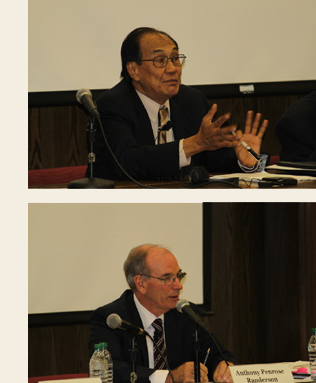





Gayla Sorenson
ICLRS Senior Fellow and Volunteer Network Coordinator
Two distinguished judges--Chief Justice Zaki Azmi (retired) of Malaysia and Justice Anthony Randerson of New Zealand--provided thought provoking insights on the role of the judiciary in pluralistic societies in a discussion moderated by Chief Judge Emeritus J. Clifford Wallace of the US 9th Circuit Court of Appeals.
Judge Azmi provided a perspective arising from his experience as a judge in a country with a recognized state religion but where a harmonious balance with minority religions is generally enjoyed. He highlighted the primary issue as arising in the family law context where marriage laws are determined by Sharia law and sometimes conflict with the claimed rights of non-Muslims. He underscored the requirement that the courts apply the laws as they have been determined by the majority of the population while giving examples of how individual acts of respect for the religious beliefs of others can promote peaceful relations.
Judge Randerson provided an informative overview of the vast scope and diversity of the Pacific Islands. He explored the challenges in applying constitutional principles while dealing with exceptions in the context of customary and civil laws which are not always consistent. Judge Randerson also noted the good work being done in New Zealand by the Law Commission that is focusing on how to resolve the conflicts between customary law and human rights, but he foresees the customary courts continuing to be an ongoing factor as the pluralistic society of the Pacific Islands continues to evolve. Following a broad ranging question and answer session, Judge Wallace concluded with the challenging observation that the role of the courts is limited and that ultimately it is the responsibility of the individuals who reside in these pluralistic societies to respect and protect the rights of all.
